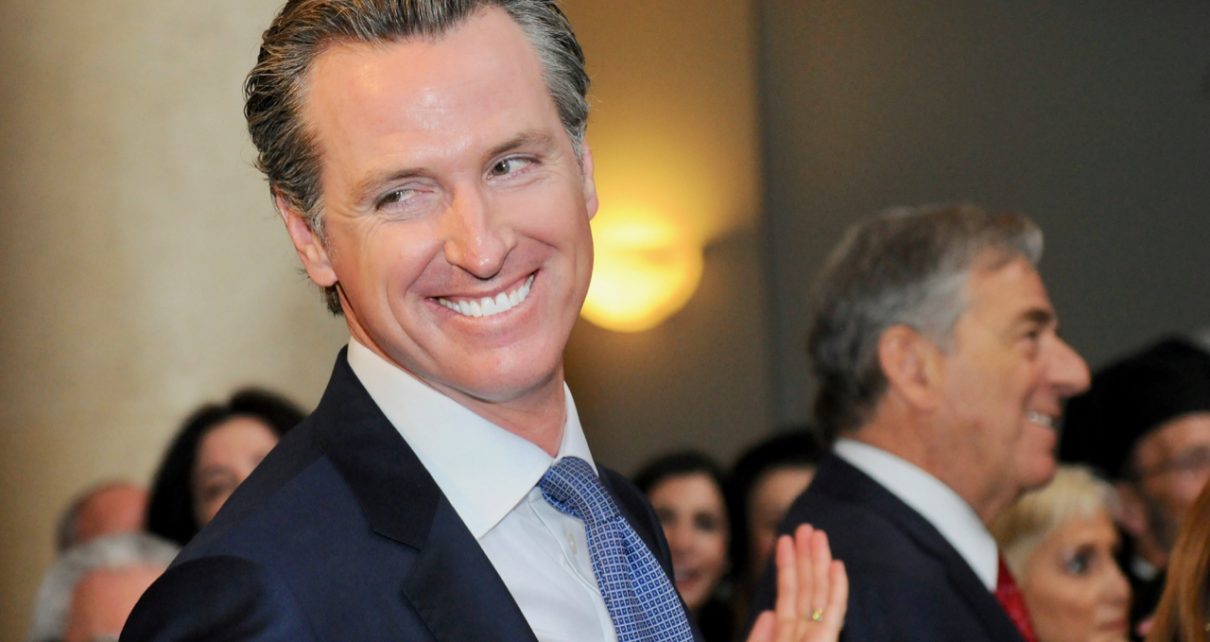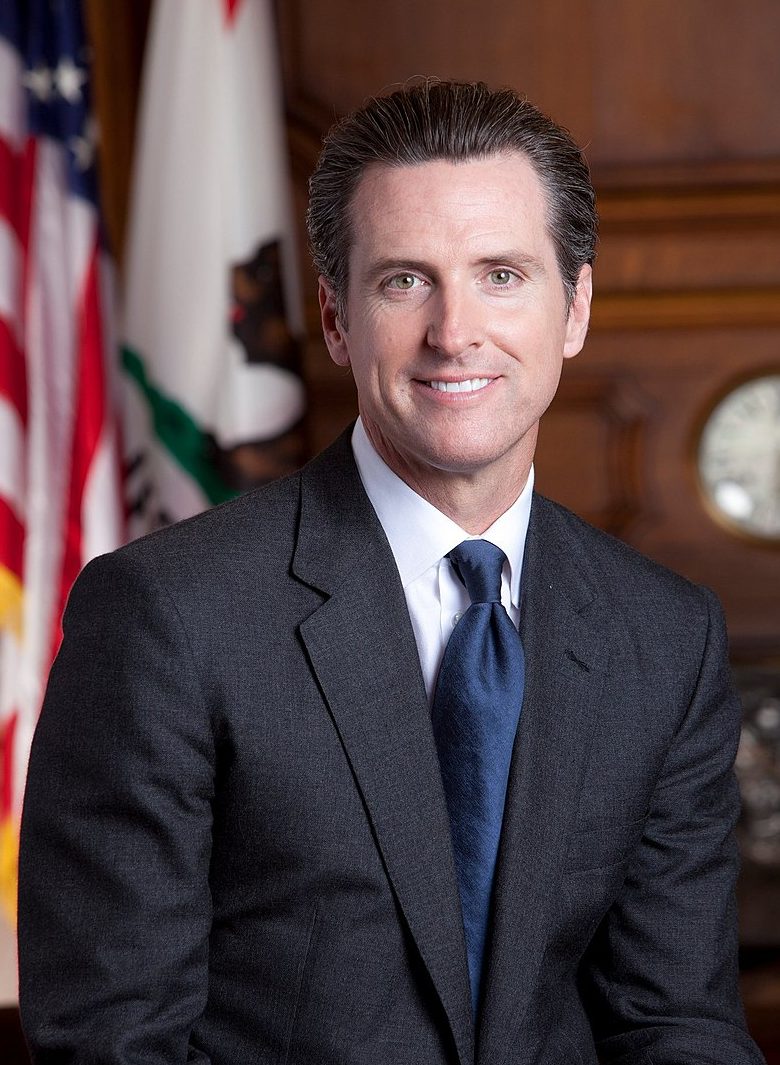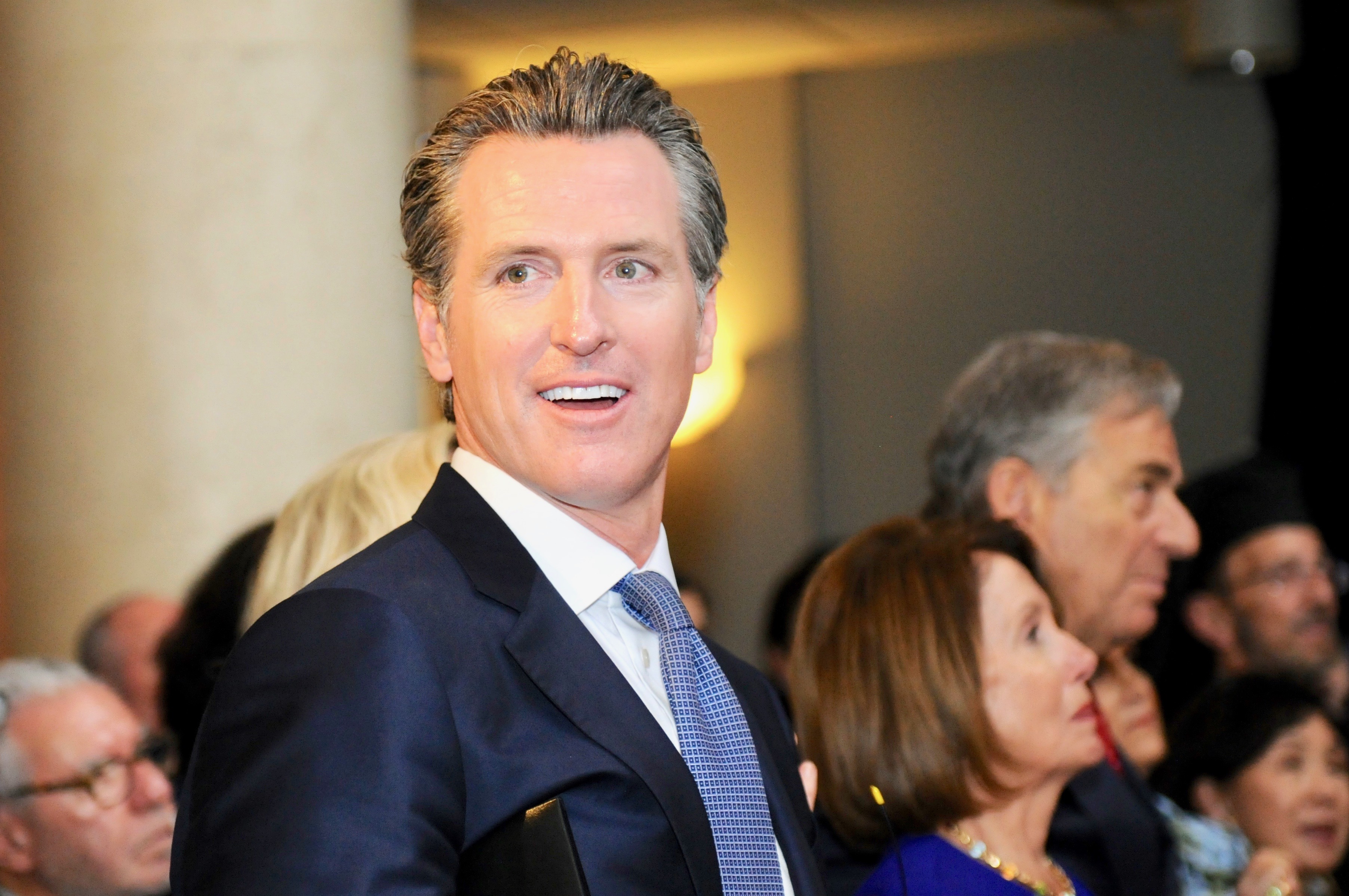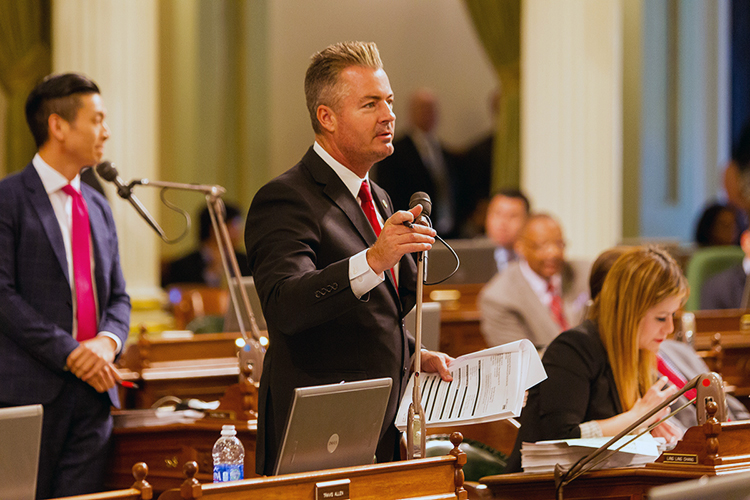
Gov. Gavin Newsom (Photo: Kevin Sanders for California Globe)
Gov. Gavin Newsom Appoints Environmental Justice Warrior To Key Post
Newsom’s top picks: California Globe will feature Newsom’s top appointed staff members in articles
By Katy Grimes, January 30, 2019 1:03 am

California’s new Governor Gavin Newsom has been busy setting up his team even since before officially taking office. And with his new team taking shape, many want to know who these appointees are, where they came from, and their backgrounds.
January 6, the eve of his swearing in, Governor-elect Newsom announced the appointment of several key senior staff and finance and legislative deputies, including Rachel Machi Wagoner as a Deputy Legislative Secretary.
Newsom has made a point of supporting Gov. Jerry Brown’s goal of California producing 100 percent of its energy from renewable sources by 2045. And Newsom has hired an environmental justice warrior in Wagoner.
In the announcement, her bio said, “She has 22 years of legislative and public policy experience. She most recently served as Chief Consultant to the California State Senate Committee on Environmental Quality. Wagoner previously served as the Legislative Director to the Department of Toxic Substances Control and Deputy Legislative Secretary to Governor Gray Davis.”
Her Linkedin profile says, “Responsible for implementing City of Chicago Climate Action Plan communications strategy,” and “Advised on climate change and climate adaptation policy.”
What the bio doesn’t expand on is that she served as the Chief Consultant on the Senate Environmental Quality Committee, which was responsible in 2016 and 2018 for killing Costa Mesa Republican Sen. John Moorlach’s SB 1463, wildfire management bills. The first SB 1463 in 2016, was a bipartisan bill which would have given local governments more say in fire-prevention efforts through the Public Utilities Commission proceeding making maps of fire hazard areas around utility lines. Gov. Brown vetoed SB 1463, despite being passed by the Legislature, 75-0 in the Assembly and 39-0 in the Senate. Brown’s veto message claimed that the PUC and CalFire have already been doing what Moorlach’s bill sought to accomplish.
After SB 1463 was killed by Gov. Brown, Sen. Moorlach and his staff had an epiphany: Redirect the state’s accumulated cap-and-trade funds into wildfire prevention. Authored in 2018, the new Senate Bill 1463, aptly named “Cap and Trees,” “would continuously appropriate 25 percent of state cap-and-trade funds to counties to harden the state’s utility infrastructure and better manage wildlands and our overgrown and drought-weakened forests.”
The idea was to actually reduce the state’s highest source of greenhouse gas emissions, curb the impacts of future wildfires and prevent unnecessary damage to life and property, the new SB 1463 fact sheet reported.
Governor Newsom’s Appointee
Rachel Machi Wagoner wrote the only bill analysis done on the 2018 SB 1463, however, her name has since been replaced on the analysis with a male consultant of the Environmental Quality Committee. I know because I used her analysis in an August 2018 article I wrote, and referenced “her” and “she” in describing the committee consultant.
Here’s what she wrote:
”…natural disasters that emit GHGs (such as wildfires) occurred before climate change, will continue to occur as the climate continues to change, and will persist even if mankind ultimately solves the problem of climate change.”
“While science can now conclusively attribute individual extreme events to climate change, it is important to distinguish that extreme events like the recent wildfires in California are a symptom of climate change, not the cause.”
“The overwhelming consensus of climate scientists is that climate change is anthropogenic, meaning human activity has caused the rising GHG concentrations in the atmosphere and, therefore, increasing average global temperatures and the extreme events climate change causes.”
”To include GHG emissions from natural disasters in the state’s inventory that tracks progress towards California’s climate goals, even ones that are made worse by climate change, betrays the fundamental scientific understanding that human activity is responsible for climate change.” (Her emphasis) 04/19/18- Senate Environmental Quality
Moorlach’s bill proposed requiring the California Air Resources Board include greenhouse gas emissions from wildlands and forest fires in the scoping plan, and appropriated 25 percent of cap and trade monies in the Greenhouse Gas Reduction Fund for the purpose of reducing greenhouse gas emissions.
The problem is that the Air Resources Board Scoping Plan doesn’t include wildfire emissions in greenhouse gas emissions. It is estimated that “for every 2 to 3 days these wildfires burn, GHG emissions are roughly equal to the annual emissions from every car in the entire state of California,” USA Today/Reno Gazette reported in 2017.
The committee bent over backwards to justify not including wildfire/forest fire emissions in greenhouse gas emissions, and thusly, killed Moorlach’s second bill.
More from her analysis:
“Notably, emissions from wildfires and other natural disasters do not count against air basins with regard to their attainment status. Emissions from prescribed and agricultural burns, however, do count against air basins with regard to their attainment status.
Additionally, including natural disasters, like the recent wildfires, in the state’s GHG emissions inventory would shift the focus from the true cause of climate change—human activity—to sources of GHG emissions that, while individually large, are simply not responsible for long-term climate change. This would impede the state’s ability to address climate change, if not make it impossible outright.”
As this bill conflicts with AB 32, SB 32, implementing the scoping plan, the Federal Clean Air Act, as well as the intent of these laws to decrease GHG and air pollution emissions and improve conditions in disadvantaged communities, this bill should not be approved. (Her emphasis)
The bill failed to pass the committee, and Rachel Machi Wagoner is now the Deputy Legislative Secretary for the Governor.
California Globe will feature Newsom’s top appointed staff members in articles throughout the next few months.
- Gov. Newsom’s and AG Bonta’s Affordable Housing Shakedown Scheme - April 25, 2024
- 6 California Cities Make the Least Affordable List for Home Buyers - April 24, 2024
- NEW REPORT: California Ranks Among Bottom of 50 States for Financial Transparency - April 23, 2024





2 thoughts on “Gov. Gavin Newsom Appoints Environmental Justice Warrior To Key Post”